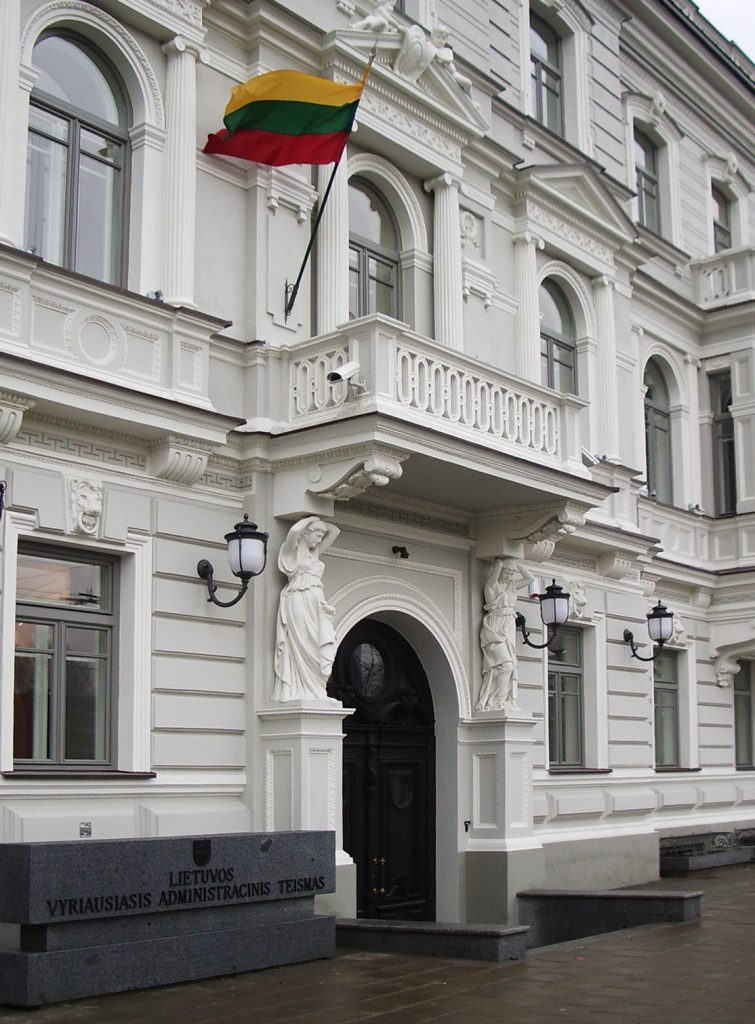



Processes that may be lately seen in some European countries show a general lack of public trust in the judiciary and the delivery of justice. If left untreated this negative trend could cast a doubt on the rule of law in general and pose a risk to our common democratic values. For example, the results of surveys of general public on trust in the judiciary in Lithuania reveal that only 25-35 per cent members of society trust the judiciary. The number, however, is very different and much higher among court users, who have actually participated in judicial proceedings, among whom 60-70 per cent trust the delivery of justice (data presented on 29th March, 2021 during public discussion “Society, media and judiciary: do we speak the same language?“, organized by the Lithuanian National Courts Administration.)
This tendency shows a clear link, that society’s trust in justice is built through personal experience, thus judiciary should be proactive in introducing and involving members of the society in daily activities of the courts. While initiatives aimed at the public in general such as ‘court volunteers’ are undertaken country-wide in Lithuania, some of the initiatives are designed directly for youth. The Supreme Administrative Court of Lithuania may be regarded as one of the pioneers, setting a good practice example in the area. During the year 2021/2022 two new initiatives for youth were launched. In the summer of 2021, when the court was faced with a possible flood of asylum cases, a long-term program called Learning by doing was started. It invited law students to apply for an opportunity to work in a team alongside with judges and assistants to judges. Six students were selected and started their activities at the court in August 2021. Although initially the students were entrusted with more technical duties, nine months later they are also encouraged to undertake more challenging tasks. The success of this program is visible from the fact that the cooperation with five of these students continues and one new member has joined this team.
Another initiative, launched in March, 2022 and carried out in cooperation with Vilnius University is aimed at bringing students, interested in public law, to the Supreme Administrative Court of Lithuania for weekly meetings with the staff of the court. During these meetings, the youth have an opportunity to familiarize themselves first-hand with the work of judges and functions of other civil servants assisting in delivery of justice as well as to learn about other court activities – such as participation in legislation and different international networks.
We believe that attracting young professionals and allowing them to witness the work of the court first-hand and to be a part of it, to work in a team of experienced lawyers as a member, allows young people to be a part of the justice making process and in turn – puts more trust in the execution of justice”
Vice-president of the Supreme Administrative Court of Lithuania Ms. Skirgailė Žalimienė
This view is shared by the members of the Learning by doing program, who in general agree that their understanding of the functioning of courts and delivery of justice has evolved significantly through the experience, with an understanding that justice is delivered through hard work and assessment of all details in a particular case and that judges bear a great responsibility for each and every decision.

The two abovementioned initiatives will possibly be a good start for a wider involvement of youth in the work of judiciary, which is beneficial not only for the courts and the youth involved directly but would hopefully also have a positive impact on the trust in the judiciary in general. The project “Portrait of a Judge” is also aimed at enhancing the rule of law and promoting trust in the judiciary through researching an innovatively presenting the best practices of selection, evaluation and promotion of judges, thus this project will also contribute considerably at enhancing attractiveness of this career path for the youth and strengthen their trust in the delivery of justice.